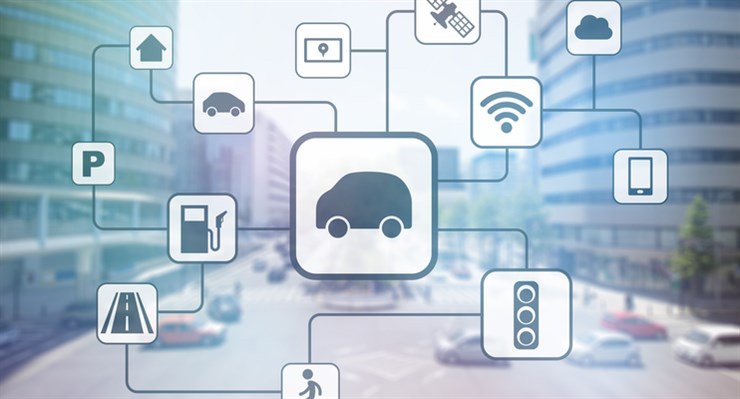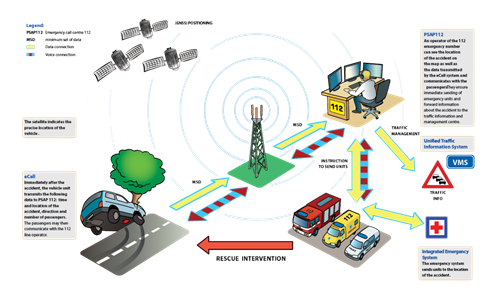
Emergency Call (eCall) - Four Years of Operation
1st Apr 2022
Emergency Call (eCall) has now been in operation on the roads of the UK since 31st March 2018. This system, which can automatically summon assistance through the emergency number 999 (and 112), is used in the event of a road traffic collision or by pressing the red emergency button located in the front of a vehicle. This device has been fitted as standard to all new types of car and light trucks manufactured after the 31st March 2018.
British APCO has actively supported the introduction of this technology given that it assists with the rapid deployment of the emergency services to an emergency on the road – eCall activation has already saved lives through its ability to instantly alert emergency services to the exact location and type of the vehicle. British APCO along with the RAC Foundation and the Society of Motor Manufacturers and Traders have been assisting National Highways in developing an information package for the motorist on what eCall is and how to use the system correctly. The information can be found through a number of social media channels; do spread the word and share more widely with friends, family and colleagues.
More information can be found HERE
eCall in the UK
The mandated deployment of eCall for new types of cars and light trucks will apply to the UK (and the rest of Europe) from 31 March 2018.
In preparation British APCO, in conjunction with other stakeholders have been working to ensure that BT as the provider of the emergency call centres for 999 (112) are ready for the mandated date of 1 October 2017.
A change in regulations for eCall deployment has resulted in private eCall (TPS eCall) as well as the mandated version of eCall can be fitted to vehicles after the 31 March 2018. Car makers and motoring organisations are now looking to deploy their own version of eCall well before the legal required date.
eCall as a technology is not new, these systems have been available from premium car makers since 2002, however GM OnStar marked a significant change in August 2015 with its European launch across all models available in the GM range in Europe.

eCall based on the single emergency number 999 (112) only performs a single role to inform the emergency services of an incident by either an automatic activation or a manual activation. Once the connection to BT is established a small packet of data is transmitted, which includes:
- Date
- Time
- Place (Specific GPS reference + or – 5m)
- Identity of the vehicle involved
- Whether a manual or automatic eCall
- Other information may be available depending on the sophistication of the system.
The mandated eCall and the TPS eCall both provide very similar data to the emergency services, the most significant difference is that the mandated eCall remains dormant until an incident, however the SIM in TPS eCall is always live. This means that the vehicle could be tracked, and data obtained from the vehicle.
Scenario
M42 Smart motorway evening rush hour, poor weather conditions, all lanes running with a speed limit in force.
A collision occurs close to junction 6 with a car misjudging the intersection and colliding with a number of other vehicles. One of the vehicles involved, a Vauxhall Insignia, suffers multiple impacts from other vehicles and the crash barrier, air bags are deployed and an automatic eCall is made from the vehicle that is received by the 999 system. The data transmitted with the call (See above) is partially decoded by BT (999) and passed to the relevant Police control room via EISEC.
Once received how is this data dealt with?
How can the data be moved between emergency services?
What does the data mean to the emergency services, what difference can this make to how you respond to this emergency?
How ready are you as an emergency service to understand what eCall is?
What does it mean to you in an operational concept?
What training are you planning to deal with eCall?
If you can answer all of these questions then you are eCall ready. If you don’t know or you are unsure British APCO can help.
eCall Update from Live Testing